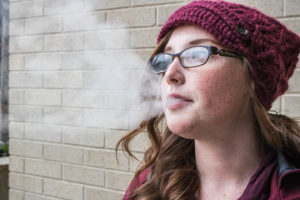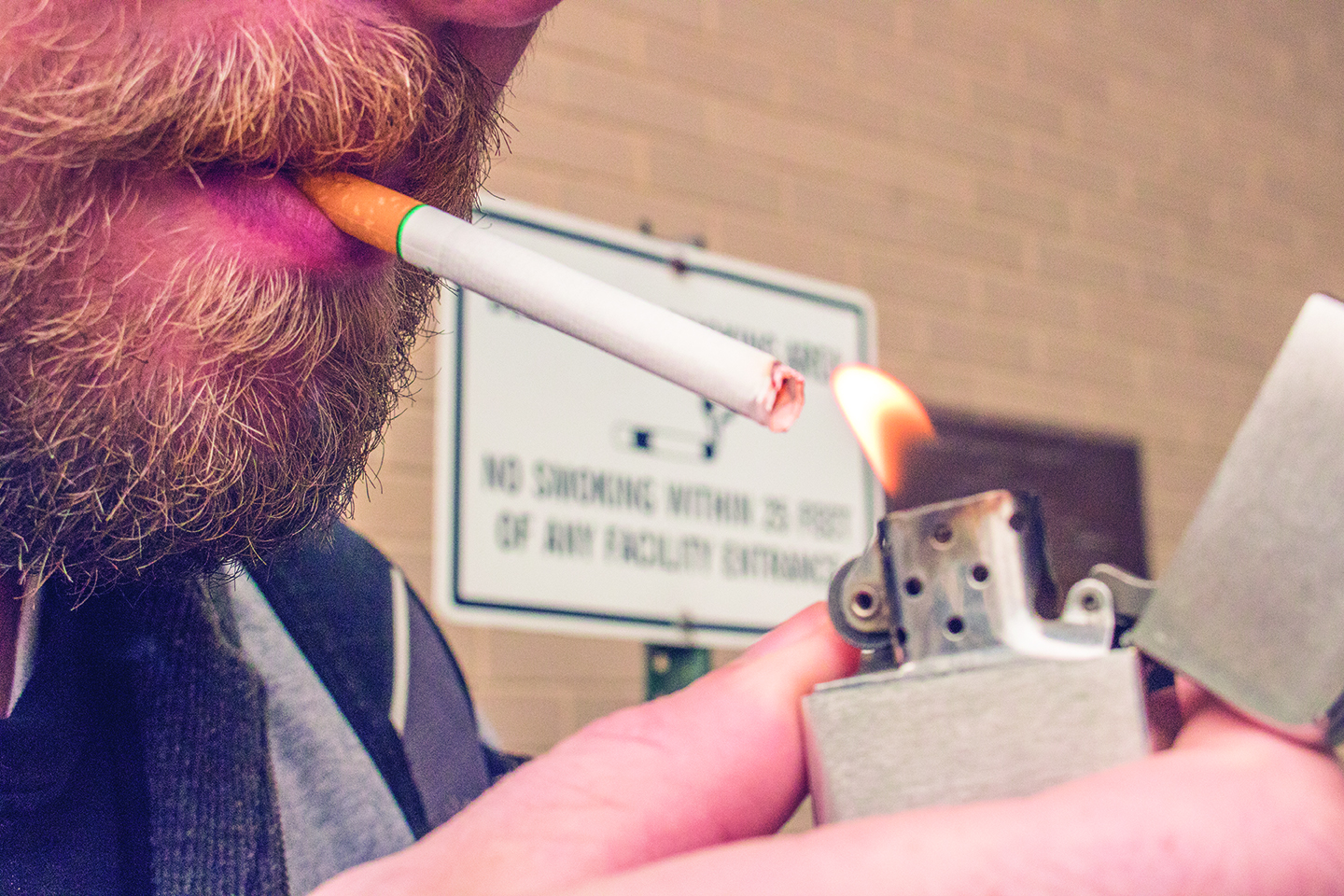Changes are coming to Sinclair College within the new year. Sinclair is going to be Tobacco-Free and Smoke-Free due to a new policy that will take effect in 2017.
According to Annesa Cheek, Vice President of School and Community Partnerships, the policy will apply to every element of Sinclair’s multiple campus facilities and locations. This includes the parking garage, rolling hills and all other outdoor spaces.
According to Cheek, the decision to become Smoke-Free was made so that Sinclair could foster an inviting and healthy environment for everyone on the Sinclair campus.
Currently, students can smoke outside as long as it is within their designated areas.
“The Board of Trustees’ decisions for Sinclair to become Tobacco-Free and Smoke-Free align with our campus values as well as national and state trends in higher education. Sinclair College strives to foster a healthy, inviting, and productive environment for all students, employees, visitors and vendors,” Cheek said.
“Tobacco and smoke detract from this philosophy and compromise the college’s investment in a safe, healthy, and clean campus community. ”
Cheek also cited the 2012 recommendation from the Ohio Board of Regents as a contribution to the the Board of Trustees’ decision.

“In 2012, the Ohio Board of Regents recommended that each Ohio public college implement a tobacco free policy. Hundreds of colleges across the country have enacted a 100% smoke free policy, including colleges and universities in Ohio like Columbus State Community College, Ohio State, and Ohio University,” she said.
Wright State University will also become Tobacco-Free in July of 2017. The University of Dayton still allows smoking on campus, however, it must be within the designated smoking areas they have set up.
The state of Ohio bans smoking in all public places or places of employment. Their smoking ban reaches all enclosed areas, except for some of the exceptions that they have laid out, such as nursing homes and hotel rooms.
This is not the first time Sinclair has considered revising the smoking policy. In 2013, the Board of Trustees looked over the results of the Ohio Board of Regents and their suggestion, however, no changes were made.
At the time, some students felt that the freedom to smoke on campus should not be changed.
“In a democratic society, I believe that as an American citizen, it is my choice to freely choose to smoke anywhere outside. Understanding that it’s not my right to inflict my habits and my smoke on somebody else inside of a building, but anywhere outside and on campus grounds, it’s my right as an American to smoke a cigarette, cigar or anything for that matter,” Brian Ortega, a Sinclair Business major said in a 2013 interview.
According to Cheek, they have received a generally positive reaction from the Sinclair campus before their decision was made.
“Prior to revising the policy to be completely tobacco-free, the college surveyed the campus community and the reaction was generally supportive. Sixty-three percent (63%) of respondents supported this decision, especially when it was made clear that we would work to make resources available to help individuals quit smoking,” she said.
The resources that have been made available to help smokers quit is a Tobacco Succession Program. The next session will begin on January 3 and will last for five weeks. This is a free program, however, registration is required.

According to Cheek, implementation of the new policy will require the help of everyone on campus.
“The college’s vision for the enforcement of the Tobacco-Free college policy is a shared responsibility of all those in the campus community, tobacco users and non-users alike. Individuals are encouraged and empowered to respectfully inform others about the policy in an ongoing effort to support individuals to be tobacco free, improve individual health, and encourage a culture of compliance; however, substantiated chronic violations are subject to appropriate disciplinary action.”
Cheek said that according to the Center for Disease Control (CDC), cigarette smoking is responsible for more than 480,000 deaths per year in the United States, including 42,000 deaths resulting from secondhand smoke exposure. This is about 1,300 deaths every day. The Ohio Department of Health reported that almost 40% of college-aged smokers either began smoking or became a regular smoker after starting college.
If anyone is interested in taking the free Tobacco Succession Program, they should register with Stephanie Caracappa. There is also free programs located at Premier Health locations.
Laina Yost
Managing Editor


